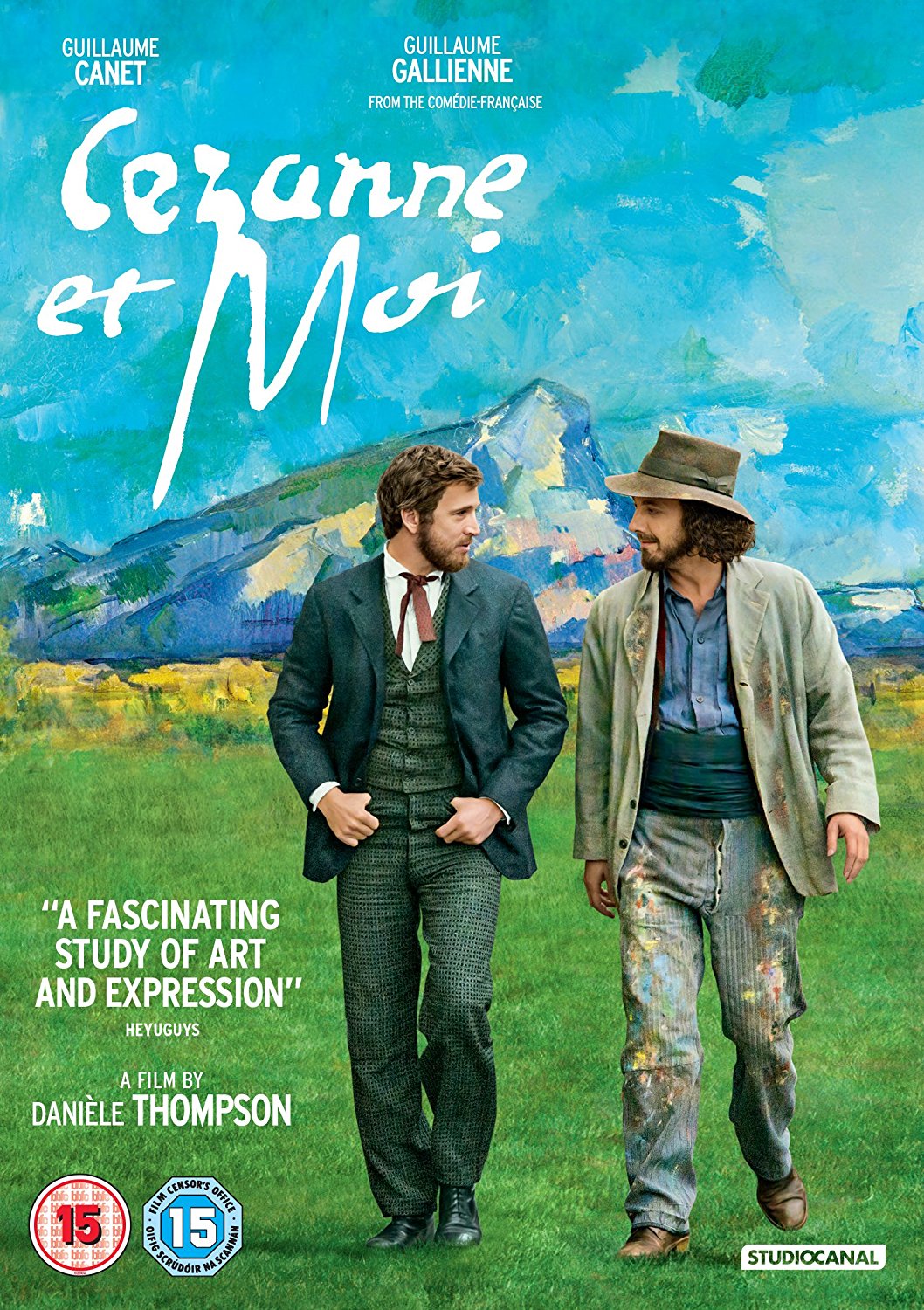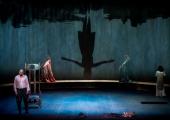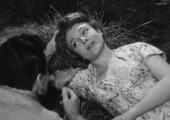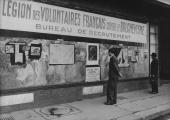For viewers not familiar with the background story of Cézanne et moi – which surely includes most of us without specialist knowledge of late 19th century French artistic and literary culture – the moi of this lavish yet curiously uninvolving double biopic is Emile Zola. Danièle Thompson’s film tells the story of the friendship between the eminent realist writer and the genius of Post-Impressionism – to whom acclaim came only late in life – that lasted, despite their differences, for almost half a century.
They first encountered one another as schoolboys in Aix-en-Provence in the early 1850s, when their circumstances could hardly have been more different: Zola was the son of an Italian engineer whose early death left his family impoverished, Cézanne the rebellious scion of an affluent banking family. The early scenes of their childhood friendship are some of the best in the film, nicely spontaneous and natural. They certainly glory in their exploration of the Provence landscapes to which Thompson returns repeatedly, not least when we witness Cézanne creating his Mont Sainte-Victoire paintings in situ.
Thompson’s film is a medium-level entry to the tradition of French cinema about artistic heritage
But this script dives around across the decades, often rather confusingly. It opens in 1888, with Cézanne, after a period of separation, visiting the now acclaimed and prosperous Zola at his home north of Paris. They certainly had grounds for difference: Zola had married Cézanne’s erstwhile model and mistress, Alexandrine (a nicely understated performance from Alice Pol). But their immediate bone of contention was Zola’s 1886 novel L’Oeuvre (often translated as His Masterpiece), with its main character, a promising but frustrated painter, in whom Cézanne saw a painfully recognisable portrayal of himself.
The accusations fly freely. “You don’t read my books any more, you judge them,” Zola tells Cézanne, to which the artist snaps back, “You’ve befriended the bourgeoisie you hated.” Between this beginning and end, there are some persuasive (and certainly culturally name-dropping) scenes of artistic fraternité. Cézanne’s first visit to Zola in Paris involves a prolonged encounter that assembles most of the great Impressionists – Manet, Renoir and Camille Pissaro, just for starters – around the same bistro table.
 We see the controversies around the Academy salons that sometimes ended in fights, though appreciating some century and a half later quite what such differences meant is sometimes challenging. More beguiling are visual recreations of some of the great works of Impressionism, notably Manet’s Le Déjeuner sur l’herbe, even if it can feel like an art-historical roll-call: you hear someone hailed as “Berthe”, you know it must be Morrisot. The travails of Cézanne’s creation, including his propensity to destroy his canvases, is there too, in as much as any film can convincingly convey the process of painting. There’s a painful moment when Cézanne, funded in his Paris atelier by Zola, learns that one of his works has actually sold – but only its central detail, an apple, cut out of the canvas on the whim of a client.
We see the controversies around the Academy salons that sometimes ended in fights, though appreciating some century and a half later quite what such differences meant is sometimes challenging. More beguiling are visual recreations of some of the great works of Impressionism, notably Manet’s Le Déjeuner sur l’herbe, even if it can feel like an art-historical roll-call: you hear someone hailed as “Berthe”, you know it must be Morrisot. The travails of Cézanne’s creation, including his propensity to destroy his canvases, is there too, in as much as any film can convincingly convey the process of painting. There’s a painful moment when Cézanne, funded in his Paris atelier by Zola, learns that one of his works has actually sold – but only its central detail, an apple, cut out of the canvas on the whim of a client.
Thompson’s film is a medium-level entry to the tradition of French cinema about artistic heritage. Guillaume Canet plays Zola rather drily, with Guillaume Gallienne, billed as a member of the Comédie-Française – as if the augustness of this project culturel was not otherwise guaranteed – as Cézanne. Full plaudits to the film’s make-up artists, who endow both with impressive varieties and combinations of facial hair. Jean-Marie Dreujou’s cinematography is much more satisfying than an overwrought score from Eric Neveux. Like that apple excised from its pictorial context, Cézanne et moi is more satisfying in its parts than in its entirety.
Overleaf: watch the trailer for Cézanne et moi










 We see the controversies around the Academy salons that sometimes ended in fights, though appreciating some century and a half later quite what such differences meant is sometimes challenging. More beguiling are visual recreations of some of the great works of Impressionism, notably Manet’s Le Déjeuner sur l’herbe, even if it can feel like an art-historical roll-call: you hear someone hailed as “Berthe”, you know it must be Morrisot. The travails of Cézanne’s creation, including his propensity to destroy his canvases, is there too, in as much as any film can convincingly convey the process of painting. There’s a painful moment when Cézanne, funded in his Paris atelier by Zola, learns that one of his works has actually sold – but only its central detail, an apple, cut out of the canvas on the whim of a client.
We see the controversies around the Academy salons that sometimes ended in fights, though appreciating some century and a half later quite what such differences meant is sometimes challenging. More beguiling are visual recreations of some of the great works of Impressionism, notably Manet’s Le Déjeuner sur l’herbe, even if it can feel like an art-historical roll-call: you hear someone hailed as “Berthe”, you know it must be Morrisot. The travails of Cézanne’s creation, including his propensity to destroy his canvases, is there too, in as much as any film can convincingly convey the process of painting. There’s a painful moment when Cézanne, funded in his Paris atelier by Zola, learns that one of his works has actually sold – but only its central detail, an apple, cut out of the canvas on the whim of a client.